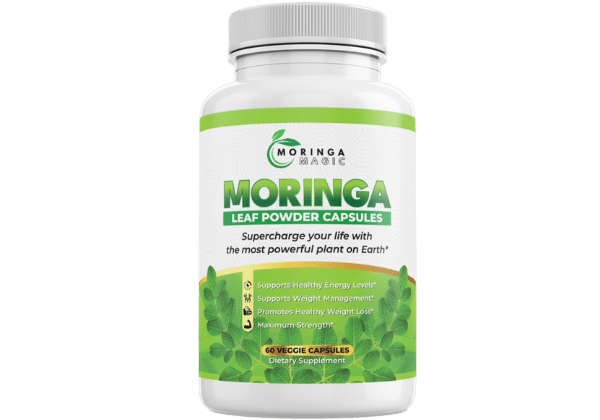
Unlocking the Weight Loss Potential of Moringa: A Comprehensive Guide
Moringa oleifera, commonly known as the “drumstick tree” or “miracle tree,” has been celebrated for centuries for its rich nutritional profile and numerous health benefits. Native to parts of Africa and Asia, this versatile plant has recently gained attention for its potential role in weight management. This comprehensive guide delves into the science behind moringa’s weight loss properties, its nutritional benefits, and practical ways to incorporate it into your daily routine.
Table of Contents
- Understanding Moringa: An Overview
- Nutritional Profile of Moringa Leaves
- The Science Behind Moringa and Weight Loss
- Incorporating Moringa into Your Diet
- Safety and Precautions
- Real-Life Experiences
- Conclusion
Understanding Moringa: An Overview
Moringa oleifera is a fast-growing, drought-resistant tree that has been utilized in traditional medicine systems like Ayurveda for over 4,000 years. Every part of the tree—leaves, seeds, pods, flowers, bark, and roots—is edible and packed with nutrients. However, the leaves are particularly renowned for their high concentrations of vitamins, minerals, and antioxidants.
Moringa has become increasingly popular in the modern world, especially in wellness and nutrition circles. Known as a superfood, it is being touted for its wide range of health benefits, including its potential role in weight loss.
Nutritional Profile of Moringa Leaves
Moringa leaves are a nutritional powerhouse, offering a wide array of essential nutrients:
| Nutrient | Amount per 100g of Moringa Leaves |
|---|---|
| Vitamins | |
| Vitamin A | 18,000 IU |
| Vitamin C | 220 mg |
| Vitamin E | 4.0 mg |
| Minerals | |
| Calcium | 440 mg |
| Magnesium | 42 mg |
| Iron | 4.0 mg |
| Potassium | 259 mg |
| Protein | 2.5 g |
| Antioxidants | Polyphenols, Flavonoids, Isothiocyanates |
Moringa leaves are exceptionally rich in vitamins A, C, and E, which are potent antioxidants that help combat oxidative stress and inflammation. The leaves also contain a significant amount of essential minerals, such as calcium, iron, magnesium, and potassium, which are critical for maintaining overall bodily functions. Additionally, they provide all nine essential amino acids, making moringa a complete source of plant-based protein.
This rich nutritional composition not only supports overall health but also plays a role in weight management by providing essential nutrients while being low in calories. It also supports the body in various ways that contribute to better metabolism and overall wellness.
The Science Behind Moringa and Weight Loss
Fat Formation Reduction
One of the key mechanisms through which moringa may support weight loss is by reducing fat formation. Studies in animals have shown that moringa can inhibit the formation of new fat cells, as well as promote the breakdown of existing fat stores. This suggests that moringa may help maintain a healthy body composition, especially when paired with a balanced diet and exercise.
Anti-Obesity Effects
Research on moringa’s potential to combat obesity has shown promising results. In animal studies, moringa extract—rich in isothiocyanates—has demonstrated the ability to reduce weight gain and improve insulin sensitivity. This is particularly valuable for managing obesity, as it suggests that moringa may help regulate blood sugar and support metabolic functions.
Moringa’s ability to influence fat metabolism and improve insulin sensitivity may be a contributing factor in its potential role in managing weight. While animal studies have yielded promising results, more research on humans is needed to confirm these benefits.
Appetite Suppression
Another possible way moringa aids in weight management is through its high fiber content. Fiber is known to promote feelings of fullness, which may help reduce overall calorie intake. Moringa, with its impressive fiber profile, could thus play a key role in curbing hunger and preventing overeating.
In addition, the antioxidants found in moringa may help regulate hunger hormones, further enhancing its appetite-suppressing effects.
Incorporating Moringa into Your Diet
Moringa can be consumed in a variety of ways, making it easy to incorporate into your daily routine. Here are some practical methods for adding moringa to your diet:
Moringa Powder
Moringa powder is a versatile option that can be easily added to smoothies, juices, soups, or even sprinkled over salads. It has a slightly earthy taste, which pairs well with other greens or fruits in smoothies. To begin, you can start with 1 teaspoon of moringa powder per day and gradually increase to 2-3 teaspoons as tolerated.
Moringa Capsules
For those who prefer a convenient and tasteless option, moringa supplements are available in capsule form. These capsules are typically standardized to provide a specific dose of moringa’s active compounds. Follow the dosage instructions on the product label or consult a healthcare provider for personalized recommendations.
Moringa Tea
Brewing moringa leaves as tea is another way to enjoy its benefits. Moringa tea is rich in antioxidants and offers a soothing, refreshing beverage. You can enjoy it hot or cold, and customize it with a splash of lemon or honey for added flavor.
Safety and Precautions
Moringa is generally considered safe for most people when consumed in moderate amounts. However, as with any supplement, it’s important to be aware of potential precautions.
Consultation
Before adding moringa to your routine, it is recommended to consult with a healthcare professional, particularly if you are pregnant, breastfeeding, or have any pre-existing medical conditions. Moringa may interact with certain medications, such as those for blood pressure or diabetes.
Dosage
It’s important to adhere to the recommended dosages. While moringa is safe in moderate amounts, excessive consumption may lead to digestive discomfort, such as bloating or diarrhea. It is advisable to start with small doses and gradually increase.
Quality
When purchasing moringa products, ensure you choose high-quality products from reputable sources to guarantee purity and potency. Moringa is available in various forms—powder, capsules, and tea—and each form may have different quality standards.
Real-Life Experiences
Many individuals have reported positive outcomes after incorporating moringa into their diets:
-
Improved Digestion and Weight Loss: Many users of moringa-infused products have noted enhanced digestion and a reduction in bloating. Additionally, some have found that it helps with weight loss by curbing appetite and improving metabolic processes.
-
Enhanced Energy Levels: Moringa is often cited as a natural energy booster. Some individuals have reported feeling more energized and focused, likely due to the combination of nutrients and antioxidants in moringa.
-
Reduced Inflammation: Several people have observed a reduction in inflammation, which can contribute to weight loss by alleviating bloating and water retention.
Conclusion
Moringa oleifera stands out as a nutrient-dense superfood with potential benefits for weight management. While scientific evidence supporting its direct impact on weight loss in humans is still emerging, its rich nutritional profile and positive anecdotal reports make it a worthy addition to a balanced diet and healthy lifestyle. As with any supplement, it’s crucial to approach moringa as a complement to, not a substitute for, regular exercise and a nutritious diet.
With its combination of vitamins, minerals, antioxidants, and fiber, moringa provides a natural way to support overall health while promoting sustainable weight loss. To maximize its benefits, be sure to integrate moringa into a well-rounded lifestyle focused on long-term wellness.

Experience the Power of Moringa
Transform your health with our premium Moringa supplements. Made from organically grown leaves, our supplements are packed with essential nutrients for your well-being.
Shop Premium Moringa Supplements